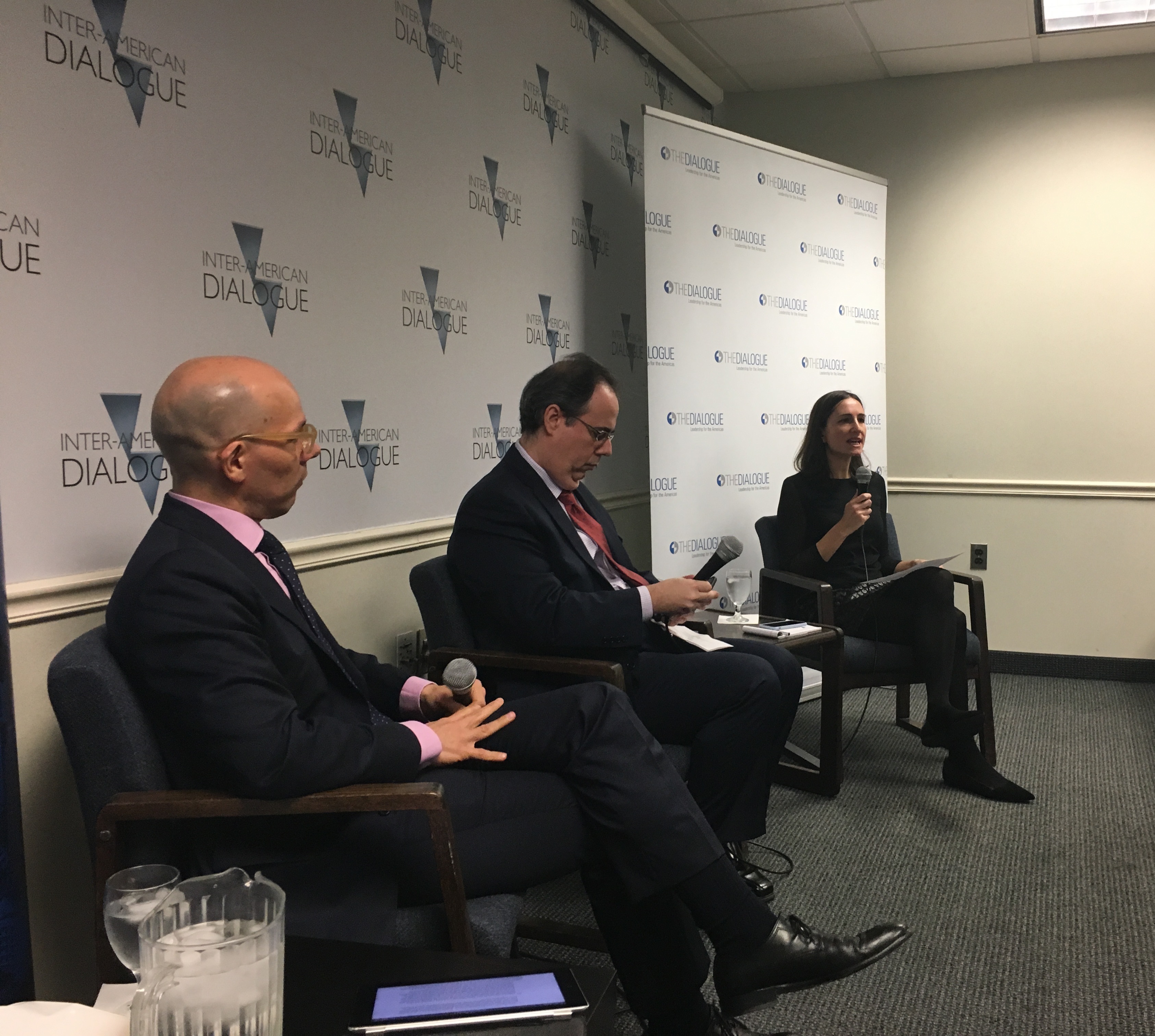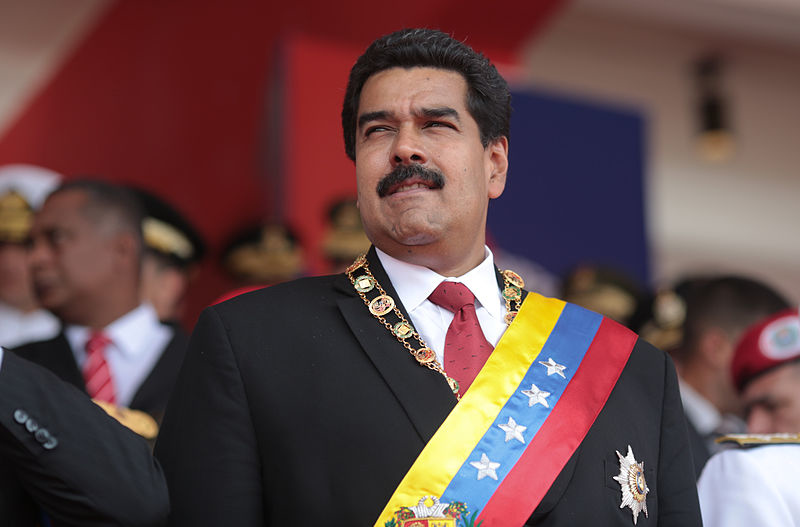Obama & Latin America: New Beginnings, Old Frictions
Today, signs of frustration are unmistakable in Washington and in many Latin American capitals, despite Obama’s immense personal appeal and the continued promise of a more productive partnership.
Venezuela’s oil industry has been in decline for years due to mismanagement and lack of investment. But this year, the industry’s problems seem to have multiplied as a result of the sharp decline in global oil prices. Within Venezuela, government revenue has been squeezed by lower production and lower oil prices leading to mass shortages of imported goods. At an October 14th panel discussion hosted by the Inter-American Dialogue, Francisco Monaldi, Latin American energy policy fellow at the Baker Institute for Public Policy, and Raúl Gallegos, senior analyst at Control Risks, discussed Venezuela’s sharp production decline, problems at state oil company PDVSA and what can be done to improve the performance of the industry that powers Venezuela’s economy.
Since Hugo Chávez took power almost two decades ago, Venezuela’s oil production has declined by about one third, or 1 million barrels/day (b/d). But in recent months production has declined much more quickly, by almost 300,000 b/d since the start of the year. Even official estimates that tend to understate the crisis cite a 250,000 b/d drop. A number of factors have contributed to this accelerated decline. PDVSA’s lack of maintenance and investment has created bottlenecks throughout the industry, noted Francisco Monaldi, and the recent oil price collapse resulted in a more acute cash flow shortage for the state oil company, hurting its ability to pay service providers, pay for imported diluents and make the basic investments needed to sustain production. As a result, providers have started to cut services to PDVSA and light oil imports needed to dilute Venezuela’s heavy crude have been stranded at sea or at port awaiting payment, further cutting into production.
 Joint ventures, in which PDVSA partners with a private company, currently account for half of the country’s production. But unfavorable conditions for PDVSA’s private partners have hurt investment flows in the country, said Raúl Gallegos. Joint venture partners have very little control over operations, contracting, personnel and supplies. The process of approving something as simple as buying a spare tire can take months, he noted. But pragmatism in oil policy has increased since the oil price collapse and Eulogio del Pino’s appointment as the head of PDVSA in 2014. In some cases, private partners are allowed to use a more favorable exchange rate of 600 bolivars/dollar that is generally used for medicine and other essential goods. The government has also offered to reduce royalties and allow private partners to control recruitment and hiring of service companies. Though these changes haven’t yet materialized, they represent a significant change in attitude, said Monaldi.
Joint ventures, in which PDVSA partners with a private company, currently account for half of the country’s production. But unfavorable conditions for PDVSA’s private partners have hurt investment flows in the country, said Raúl Gallegos. Joint venture partners have very little control over operations, contracting, personnel and supplies. The process of approving something as simple as buying a spare tire can take months, he noted. But pragmatism in oil policy has increased since the oil price collapse and Eulogio del Pino’s appointment as the head of PDVSA in 2014. In some cases, private partners are allowed to use a more favorable exchange rate of 600 bolivars/dollar that is generally used for medicine and other essential goods. The government has also offered to reduce royalties and allow private partners to control recruitment and hiring of service companies. Though these changes haven’t yet materialized, they represent a significant change in attitude, said Monaldi.
Going forward, Venezuela has a number of options to encourage additional investment. Further adjusting the exchange rate, offering larger shares of joint ventures to private partners (the law requires that PDVSA hold 50.1% but the current split is usually 60% PDVSA - 40% private partner), and reducing royalties from 30% to 20% could all contribute to more investor interest.
Despite the dire situation, the speakers agreed that a complete collapse in production in Venezuela is not likely. Future production levels as well as the likelihood of default will depend on the price of oil and the success of PDVSA’s proposed bond swap, which offers shares worth 50.1% of PDVSA's US refining and retail business Citgo as a guarantee. Initial interest in the bond swap has been lower than anticipated – PDVSA has already extended the deadline for investors to swap three times – and if it isn’t successful the company and country will be in an even more critical financial situation next year.
Today, signs of frustration are unmistakable in Washington and in many Latin American capitals, despite Obama’s immense personal appeal and the continued promise of a more productive partnership.
Despite continued tensions among the Andean countries, four U.S. ambassadors painted an encouraging picture of regional stability.
Even with loaded dice, Chávez may be running scared. What to do to preserve power? That’s all that has ever mattered.
 Hugoshi / Wikipedia / (CC BY-SA 4.0)
Hugoshi / Wikipedia / (CC BY-SA 4.0)